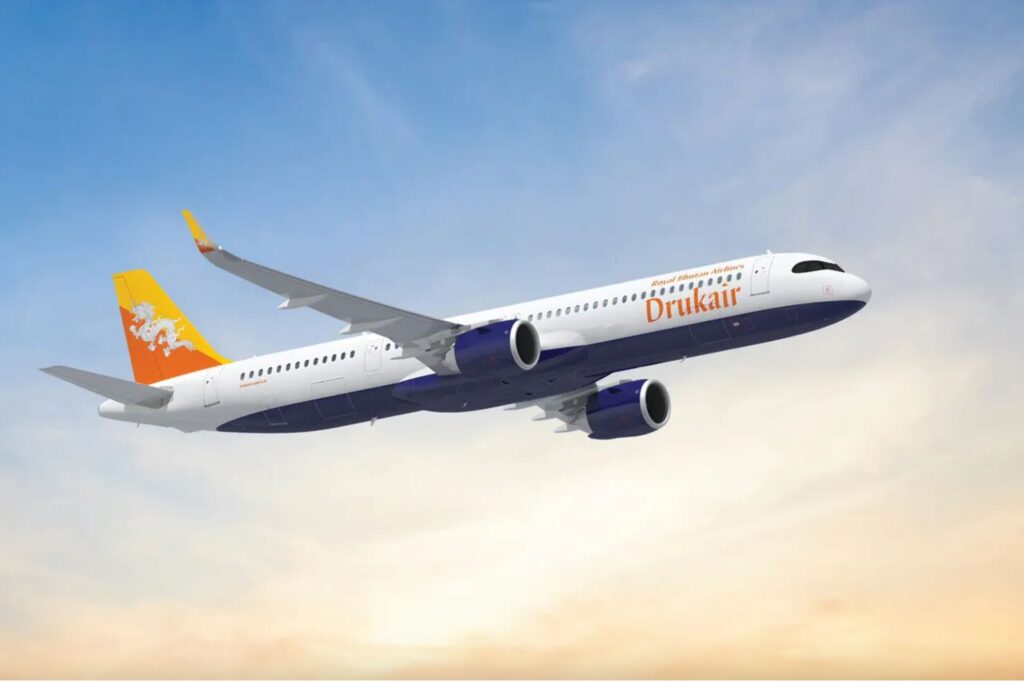Drukair – Royal Bhutan Airlines, the national flag carrier of the Kingdom of Bhutan, has signed a Memorandum of Understanding (MoU) with Airbus for three A320neo and two A321XLR aircraft to expand its international network.
The understanding was announced on July 22, 2024 at the Farnborough International Airshow.
Drukair currently operates four Airbus A320 family aircraft consisting of three A319s and one A320.
The national flag carrier of the Kingdom of Bhutan plans to fly these aircraft out of Paro International Airport (PBH) and the new airport at Gelephu Mindfulness City (GMC), which the country intends to become Bhutan’s futuristic economic hub. From there, Drukair will expand its connectivity to Europe, South East Asia and Australia.
Airbus anticipates that delivery of the new aircraft will begin in 2030.
Drukair is headquartered in Paro, Bhutan, and operates scheduled flights to 10 international destinations, including five countries in the South Asian region. Drukair also operates to three domestic destinations.
“We are thrilled to embark on this new chapter in Drukair’s history, which dovetails perfectly with development of the Gelephu Mindfulness City and work to expand the Gelephu airport. Our investment in these state-of-the-art aircraft underscores our dedication to supporting Bhutan’s vision of holistic and mindful development,” Tandi Wangchuk, Drukair CEO said in a statement.
The A321neo is the largest member of Airbus’ best-selling A320neo family. The European aircraft manufacturer claims that the A321neo brings a 50% noise reduction and more than 20% fuel savings and CO₂ reduction compared to previous generation single-aisle aircraft.
The A321XLR is the next evolutionary step from the A320neo which responds to market needs for even more range and payload. Airbus said that the A321XLR will deliver an unprecedented Xtra Long Range of up to 4,700nm – 15% more range than the A321LR and with 30% lower fuel burn per seat compared with previous generation competitor aircraft, as well as reduced NOx emissions and noise.

